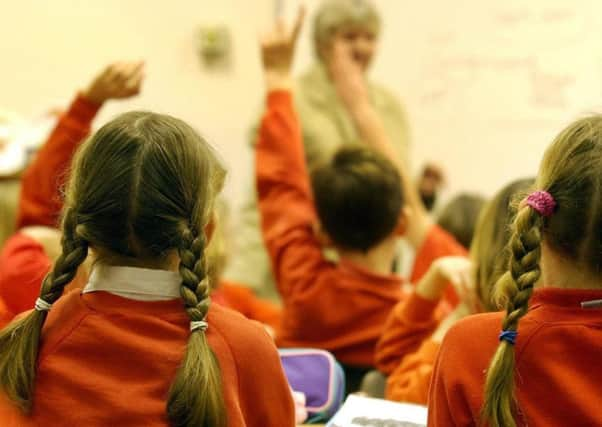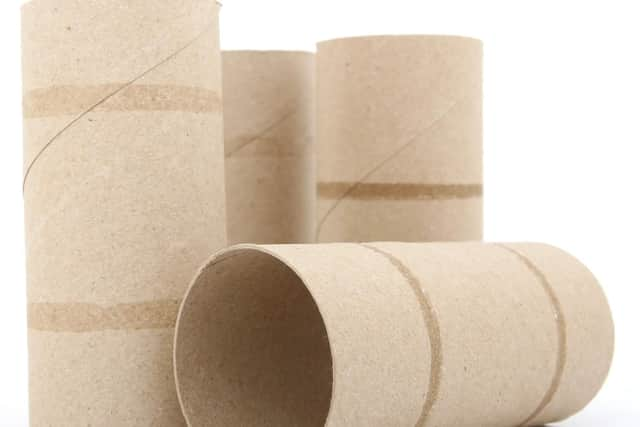Teachers 'spend a million hours a year' teaching primary pupils toilet hygiene


A report by health and hygiene company Essity found a fifth of early years teachers spend up to 30 minutes a week cleaning up youngsters after they have been to the toilet.
It equates to more than a million hours of lost teaching time over the course of an academic year, the researchers said, and costs the education system £11 million based on teachers' average salaries.
Advertisement
Hide AdAdvertisement
Hide Ad

The report was based on interviews carried out by YouGov with more than 400 primary school teachers and 500 parents and children earlier this year.
Essity, which manufactures personal care items, found that 44% of children avoid using the toilet at school at some point every week, while 11% do so every day.
One in 10 primary school teachers said they have seen children not eating or drinking in a bid to avoid using school toilets, while 60% rate pupils' toilet hygiene as poor.
It found 4.7 million primary school children actively avoid defecating at school and a quarter of primary school teachers and pupils describe hygiene levels in schools as poor or very poor.
Advertisement
Hide AdAdvertisement
Hide AdThe risks of children not going to the toilet when they need to include dehydration, bladder infections and potential bowel and continence problems in later life, the report's authors said.
A fifth of those questioned said no checks were made on school toilets during the day.
A further 59% of primary school teachers believe improving toilet hygiene in schools would reduce illness among children, teachers and other staff.
Kevin Starr, managing director at Essity UK, said: "There's clear evidence to suggest that, by not paying enough attention to hygiene levels in primary school toilets and the hygiene behaviours of the children who use them, we risk undermining all the fantastic work that is going on elsewhere in our schools and in education in general.
Advertisement
Hide AdAdvertisement
Hide Ad"Schools and local authorities are trying to do their best with limited budgets and resources. Spending more money isn't an option and we don't believe it's the answer either.
"Our aim in highlighting these issues is to open up a dialogue with schools, parents, health experts and local authorities and work with them, using the collective expertise and experience to identify simple and easily implementable solutions to tackle the issues, with little or no cost to schools.
"By doing this, we aim to improve health and well-being, reduce absenteeism and increase self-esteem and confidence of children in the UK."
Essity will be working with teachers, local authorities and health professionals through its School Hygiene Essentials Initiative to improve toilet hygiene.
Advertisement
Hide AdAdvertisement
Hide AdIt plans to pilot these measures in a number of schools to assess their impact on children's education and well-being over a six-month period, before the schools system potentially rolls them out more widely.
Sharon white, chief executive of the School and Public Health Nurses Association, said: "We know that an effective layout, efficient cleaning and maintenance alongside good access policies are all essential to ensure that school facilities are valued and accessed.
"Children and young people need to be healthy to be able to learn and grow; depriving them of basic needs such as toileting facilities should not be a big ask and a public health approach is urgently required to address these unacceptable shortfalls."
James Bowen, director of teachers' trade union NAHT Edge, said: "We are concerned about the increasing number of school leaders who are telling us that children are arriving in school unable to use the toilet independently.
Advertisement
Hide AdAdvertisement
Hide Ad"Whilst there will always be a small number of children who have specific problems and need additional support, this appears to be a growing problem.
"It is worrying to see the number of children who report avoiding the use of school toilets.
"There can be lots of reasons young children aren't confident using the toilet at school, but one deterrent can certainly be the hygiene and condition of the facilities.
"With school budgets under enormous pressure, the reality is that most are finding it increasingly difficult to repair and upgrade such essential facilities.
"A recent NAHT survey showed that the school funding crisis has forced 63% of schools to cut the building maintenance budget.
"Whilst money alone is not the solution, such cuts have an impact."